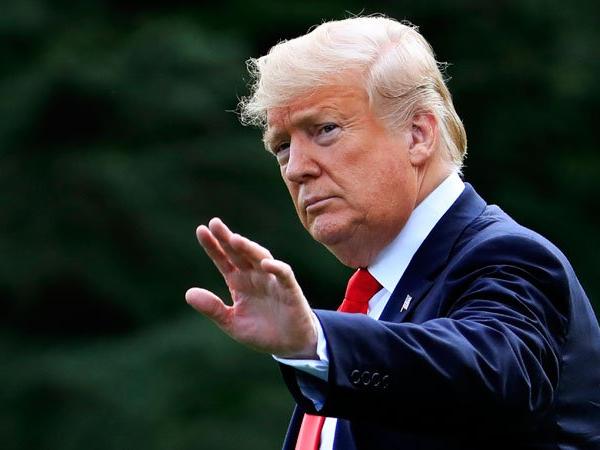Despite Trump's appeals, executions declining in the US

Agency
December 14, 2018

WASHINGTON– Despite President Donald Trump's appeals for increased use of the death penalty, its application has declined in the United States, with executions and sentences at historically low levels.
Twenty-five people were executed in 2018, including one put to death on Thursday night in Florida, according to the annual report of the Death Penalty Information Center (DPIC).
"New death sentences and executions remained near historic lows in 2018," DPIC said.
Another sign of the decline: the state of Washington, in the northwestern US, declared it illegal, becoming the 20th US state to do so.
Of the 30 other states, only eight carried out executions and conservative Texas was responsible for more than half (13) of the yearly total, according to the DPIC, a Washington-based nonprofit organization.
The numbers, excluding Texas, are the lowest since 1991.
The number of death sentences handed down has also declined: there were 42 capital sentences throughout the US in 2018, a far cry from the 315 across the country in 1996.
Trump, however, has called at regular intervals for more use of capital punishment.
"Anybody who does a thing like this to innocent people in temple, in church... they should really suffer the ultimate price," Trump said on October 27, just after the worst anti-Semitic attack in recent US history, which left 11 people dead at a Pittsburgh synagogue.
On other occasions, the Republican billionaire has advocated the death penalty for people who kill police and to fight drug trafficking.
More concretely, he appointed two conservative justices to the US Supreme Court, shifting the court to the right -- and away from abolition of the death penalty -- for years to come.
'Madness'
The high court's mission is to ensure respect for the US Constitution -- which prohibits "cruel and unusual" punishment -- and it ultimately has the power to uphold or strike down the death penalty.
It suspended the death penalty in 1972 before restoring it in 1976. Since then, it has restricted its use, notably by prohibiting death sentences for minors in 2005.
But the decline in use of the death penalty, which began about 10 years ago, is mainly due to questions about the legality of lethal injections and the availability of drugs to carry them out.
Opponents of the death penalty have filed more and more appeals against the drug cocktails used, arguing that they inflict significant suffering on the convicts. And large pharmaceutical companies -- not wishing to be associated with executions -- have refused to provide the necessary drugs.
For this reason, 2018 marked the return to use of the electric chair, which was used twice in Tennessee after not being employed since 2013.
In both cases, the inmates opted for the electric chair, preferring it to the potentially more extended agony of lethal injection. Progressive Supreme Court Justice Sonia Sotomayor denounced it as "madness," refusing to join her colleagues on the court who gave these executions the green light.
For the DPIC, the US is moving away from the death penalty because Americans are increasingly skeptical about it.
According to a Gallup poll in October, 56 percent of Americans support the death penalty, a proportion similar to 2017, but the lowest in 45 years. And for the first time, only a minority (49 percent) believe it is "applied fairly."
"Election results in 2018 also pointed towards continued future reduction in the use of capital punishment," the DPIC said.
"Since 2015, voters have removed prosecutors in 11 of the 30 most prolific death-sentencing counties in the country, replacing most of them with reform candidates."
---


Leave Comment